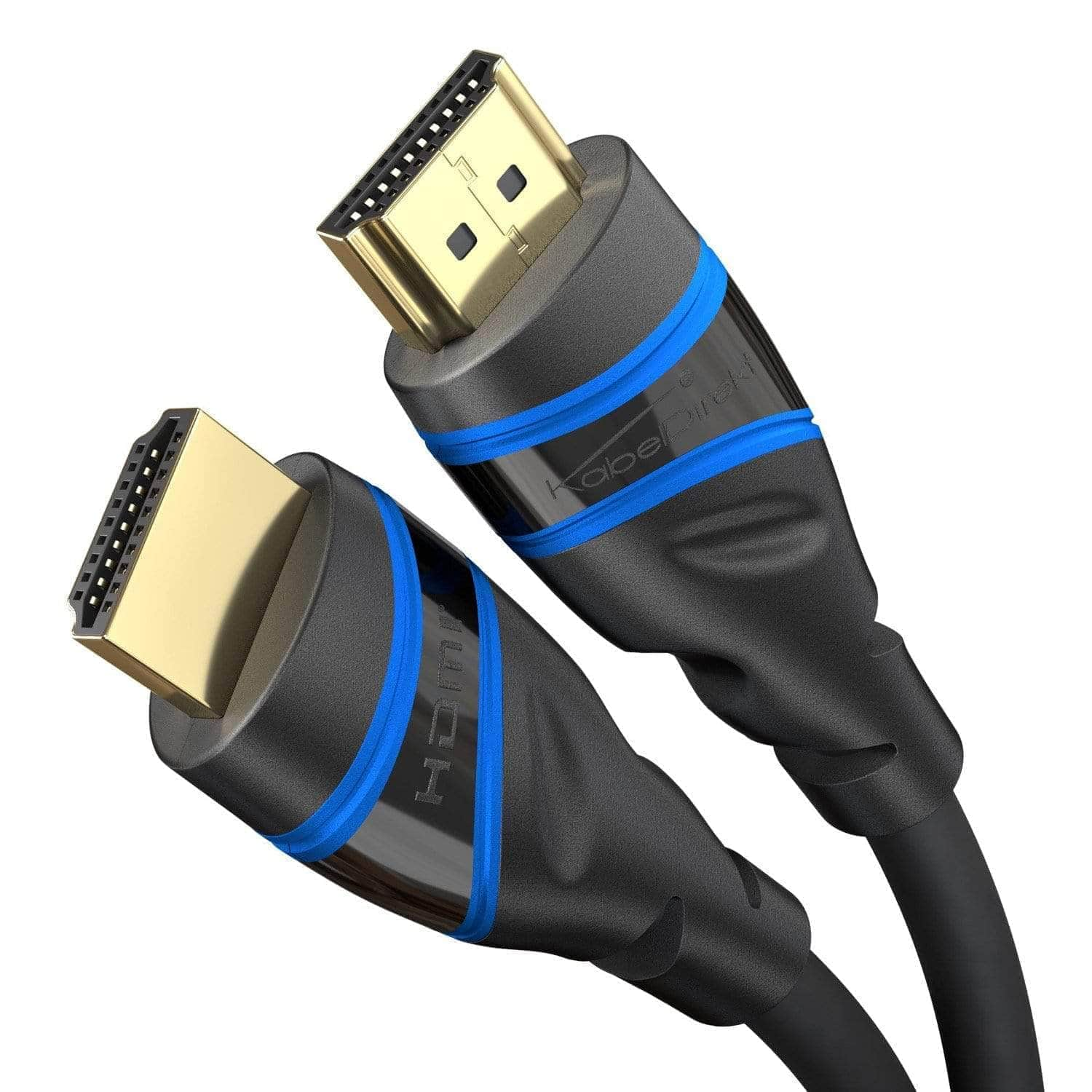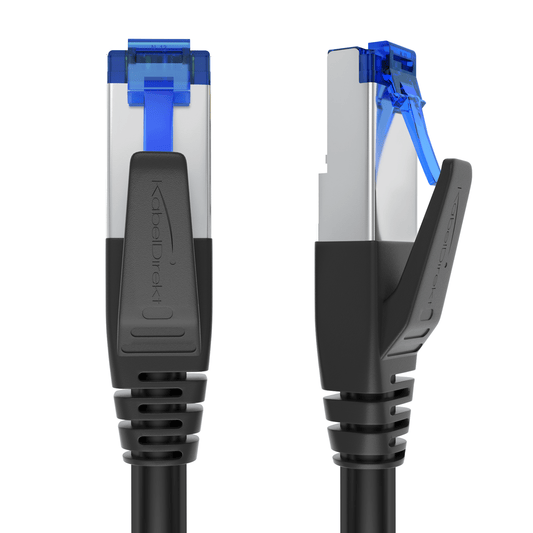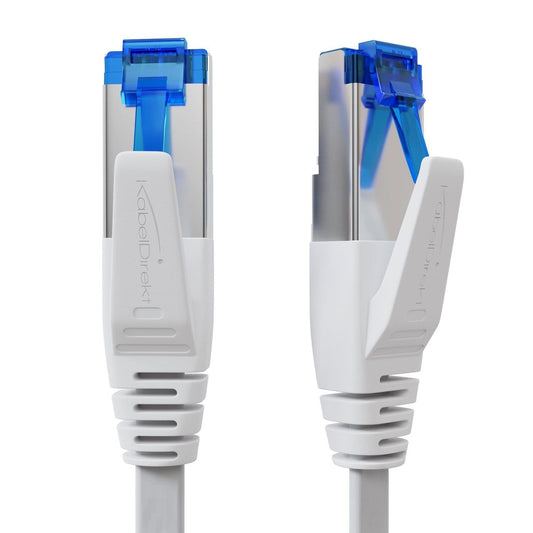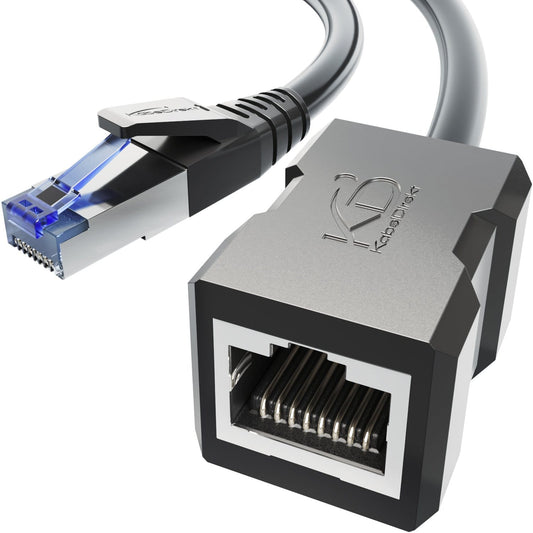-
{# Optional: Hier war bei dir ein zusätzlicher Titelblock; den habe ich entfernt, damit der Titel nur einmal erscheint. #}
-
{# Optional: Hier war bei dir ein zusätzlicher Titelblock; den habe ich entfernt, damit der Titel nur einmal erscheint. #}
-
{# Optional: Hier war bei dir ein zusätzlicher Titelblock; den habe ich entfernt, damit der Titel nur einmal erscheint. #}
Collection: CAT7 ethernet cables
CAT 7 network cables for super-fast internet
If you value having a stable internet connection and are always looking to have the highest speeds, you’ll need high-quality Ethernet cables. Wi-Fi is practical, convenient, and adequate for most purposes, but a direct cable connection will always achieve the most reliable results. When you go to buy network cables, there are many options since there are many different categories – that’s why our online shop carries CAT 7 cables and more. Read on to learn about what sets this cable apart and whether it’s a good choice for you.
CAT 7 network cable characteristics
Just like all LAN cables, CAT 7 (category 7) cables are twisted pair cables with copper conductors. If you take a look inside one of these cables it becomes obvious why they’re called this as they’re made up of several conductors which are twisted together in pairs. This provides more effective protection against electrical and magnetic interference than cables whose twisted pairs run in parallel.
CAT 7 cables are more capable than CAT 6 network cables but less capable than CAT 8. They function at an operating frequency of up to 600MHz and a maximum data transfer speed of 10Gbit/s. So, they’re more than enough for any home internet connection. But using a cable kind of this doesn’t guarantee that you’ll always be surfing the world wide web at maximum speed, since this still depends on your connection. In any case, you can be sure that the cable isn’t limiting your bandwidth, which is definitely a possibility if you’re using considerably less capable LAN cables.
Thick or thin? It’s your choice
In our shop we offer two types of CAT 7 cables with tried-and-tested RJ45 connectors. Both types are good for setting up a zippy network and can be used with computers, video game consoles (PlayStation, Xbox), smart TVs, and other internet-enabled devices with a LAN port.
As well as sporting different colours (black or white), these two cables have different designs. The black CAT 7 network cable is of a standard thickness and is triple shielded (SF/FTP). Additionally, each twisted wire pair has its own foil shielding in addition to the overall braid screen, making the cable really resistant to interference and noise. It also features elastic kink protection, making it durable yet still flexible enough.
Our white CAT 7 cable is referred to as a flat cable or slim cable as its profile is just 2.4mm. This makes the cable perfect for discreetly laying along the wall behind the skirting board or under a carpet. In contrast to our black version, it doesn’t have an overall shield but has a foil that surrounds the twisted pairs (U/FTP).
FAQs about CAT 7 network cables
What’s the difference between CAT 6 and CAT 7?
CAT 7 Ethernet cables are faster than CAT 6 cables. The latter only reaches a maximum frequency of 250MHz and a bit rate of 1Gbit/s, whereas CAT 7 models reach a good 10Gbit/s.
Which is better: CAT 6 or CAT 7?
CAT 7 is logically the better choice on account of its faster speed. However, CAT 6 is enough for most European households since barely anyone has an internet connection with a bandwidth faster than 1Gbit/s.
Which CAT 7 cable is best?
Which of our CAT 7 cables we’d recommend depends primarily on how you mean to lay it. If you want to hide it inconspicuously behind a skirting board or under a carpet, we’d recommend the flat white cable. If you’re after the best shielding possible, which is worth it for long cables, we’d recommend the black cable. Nonetheless, both types perform equally well.
Which network cable should I get for my home?
A CAT 6 cable should be sufficient for most homes as home internet connections with speeds faster than 1Gbit/s are very rare. CAT 7 and CAT 8 cables are a bit more expensive but have better shielding and higher bit rates. So, installing CAT 7 cables in your home would be the more future-proof option.

HDMI Cables
We offer HDMI cables in all versions, lengths, and materials. Our products are engineered in Germany and manufactured worldwide in licensed facilities.




